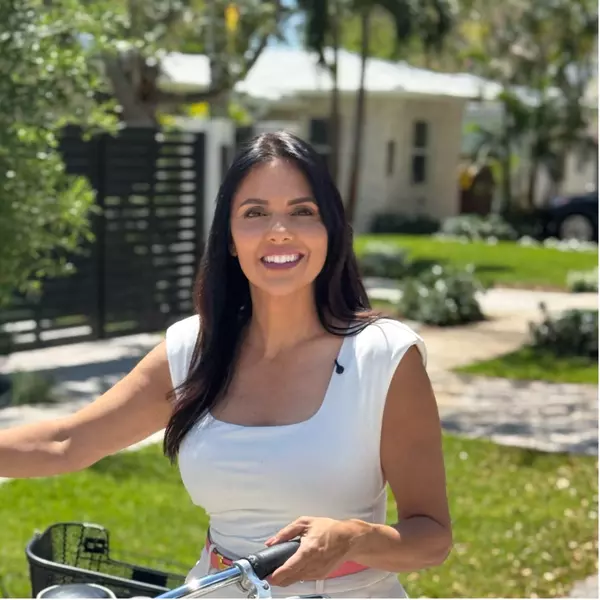Should You Lower Your Price or Wait? Melissa Carbonell’s Fort Lauderdale Selling Strategy

Question: Should you lower your price or wait when selling a home in Fort Lauderdale, FL?
Answer: Whether you should reduce your price or wait depends on buyer activity, local competition, the time of year, and how your home compares to similar listings. In many cases, a strategic adjustment — guided by a local expert like Melissa Carbonell — leads to stronger offers without leaving money on the table.
Why Pricing Decisions Matter When You Sell Home in Fort Lauderdale
If you’re getting ready to sell home in Fort Lauderdale, you already know that pricing isn’t just a number — it’s a strategy. And deciding whether to drop your price or stay patient can feel like one of the hardest calls to make.
Fort Lauderdale’s market moves fast, especially with:
-
Out-of-state relocators
-
Seasonal snowbird buyers
-
International investors
-
Luxury home shoppers
-
Local families aiming for school-year timing
So when your listing hits the market, buyers will tell you very quickly whether you’re priced correctly — and how you respond can impact your final sale price by thousands.
Melissa Carbonell, a trusted Fort Lauderdale Realtor, puts it simply:
“Price drops shouldn’t be emotional or reactive. They should be data-driven, intentional, and perfectly timed.”
This guide helps you understand when to adjust and when to stay the course.
Understanding How the Fort Lauderdale Market Impacts Your Pricing Strategy
Your home doesn’t exist in a vacuum — it competes in a live marketplace where the rules change week to week.
Here are the top factors that affect your price and whether you should wait or adjust:
1. Current Buyer Demand
Fort Lauderdale demand typically peaks between January and April, dips in late summer, and rebounds in fall.
High demand → More showings → More offers → Stronger pricing power
Low demand → Slower interest → More pressure to stand out
2. Inventory Levels
Inventory fluctuates by neighborhood:
| Neighborhood | Avg. Price | Inventory Trend | Notes |
|---|---|---|---|
| Las Olas Isles | $2.4M | Moderate | Steady luxury demand |
| Coral Ridge | $1.1M | Rising | More renovated homes hitting market |
| Victoria Park | $950K | Tight | Homes sell fast here |
| Imperial Point | $710K | Moderate | Family-friendly price point |
| Harbor Beach | $2M+ | Stable | High-end buyers year-round |
If inventory increases in your price range, staying at a high list price becomes harder.
3. Interest Rates & Insurance Costs
South Florida buyers pay close attention to both.
Higher rates = smaller buyer pool.
High insurance quotes = reduced affordability.
4. Seasonal Buyer Behavior
-
Winter: Best time to sell — tourist season + snowbirds
-
Spring: Strong activity from relocators
-
Summer: Slower — heat + vacations
-
Fall: Investor and corporate relocation season
Seasonal context helps determine whether waiting could actually benefit you.
Signs You May Need to Lower Your Price
Not all slow activity is a pricing issue — but these are strong indicators that your price isn’t aligned with the Fort Lauderdale market:
1. You’ve had fewer than 5 showings in the first 10–14 days
In Fort Lauderdale’s active market, showings should come quickly when the price is right.
2. Your online views are high, but inquiries are low
This means your price looks too high compared to other homes buyers are viewing.
3. You’re listed above recent neighborhood comps
If three similar homes recently sold for $750K, and you’re at $825K with no upgrades, buyers will skip yours.
4. Neighboring listings are priced lower — and selling
Competition matters. If you’re the highest-priced home on the block, buyers notice.
5. Buyer feedback consistently mentions price
Melissa Carbonell always collects feedback from showing agents to identify patterns.
6. You listed during a slower season
Summer listings sometimes benefit from a mid-season adjustment.
Signs You Should Wait Before Lowering Your Price
A price drop isn’t always necessary — in fact, many sellers drop too soon.
Here’s when waiting may be the better move:
1. You're getting showings, but no offers yet
This can indicate minor issues, not price:
-
Staging
-
Lighting
-
Minor repairs
-
Photo quality
A refresh may fix the problem without cutting into your equity.
2. Your home is unique or premium
Luxury buyers take longer to act, especially in:
-
Las Olas Isles
-
Harbor Beach
-
Seven Isles
-
Bay Colony
Premium properties attract fewer, but better-qualified buyers who need time.
3. Your agent launched the listing right before a major holiday
Timing matters — holiday weekends slow buyer traffic.
4. You listed right before peak season
If you hit the market in late December, early January traffic is right around the corner.
5. Interest rates just dropped
Buyer demand often surges 2–4 weeks after rate announcements.
What a Smart Price Adjustment Actually Looks Like
If you do lower the price, it must be strategic — not random.
Melissa Carbonell uses a three-step method:
1. Analyze 30-Day Market Data
She compares:
-
Days on market
-
Average sale-to-list ratio
-
Recent price reductions around you
-
Competing inventory
This determines whether a price drop will help or hurt.
2. Identify Your Buyer Segment
A waterfront buyer behaves differently than a first-time condo buyer.
Melissa adjusts your strategy to target the right audience.
3. Choose a Precision Adjustment
Fort Lauderdale buyers respond most to:
-
2–3% adjustments
-
Prices that fall into a new search bracket (example: $1,020,000 → $999,900)
-
Round-number corrections ($705K → $699K pulls in more searches)
Strategic repositioning can “wake up” your listing without cutting deeply.
When a Price Drop Can Increase Your Final Sale Price
It sounds backwards — but in Fort Lauderdale, a well-timed, small reduction can spark:
-
A new wave of showings
-
Multiple offers
-
A bidding war
-
Better final terms
-
Faster closing timelines
Melissa sees this often when:
-
Comp inventory drops suddenly
-
New buyers enter the market during peak season
-
A small drop places your home into a more popular search range
A $10,000 cut can sometimes bring in offers $15,000–$30,000 higher than your previous list price because buyers compete.
How Melissa Carbonell Helps You Decide Whether to Lower or Wait
Selling a home is part data, part psychology, and part timing — which is why having a local, experienced agent matters.
Here’s how Melissa Carbonell guides sellers:
1. Weekly Activity Reports
You get real numbers on:
-
Showings
-
Online views
-
Saved searches
-
Agent feedback
-
Nearby sales and new listings
2. Neighborhood-Level Strategy
Melissa tailors recommendations based on:
-
Your subdivision
-
Local buyer behavior
-
Price tier
-
Competition
-
Seasonal outlook
3. Full Compliance & Transparency
She follows:
-
Fair Housing Act
-
RESPA regulations
-
NAR Code of Ethics
-
Florida’s advertising rules
No steering, no inflated promises — just honest guidance.
4. A “Less Drop, More Value” Approach
Before lowering price, Melissa checks if:
-
Staging can be refreshed
-
Photos need updating
-
Curb appeal can be improved
-
Marketing channels need expansion
-
New buyer segments can be targeted
Only after exhausting value-add options does she recommend adjusting price.
Real Fort Lauderdale Examples (Based on Recent Trends)
Example 1: Victoria Park Home
-
Listed at: $895,000
-
Good traffic but no offers in 21 days
-
Melissa improved staging + updated night photography
-
No price drop
-
Home sold for $902,500 the following week
Example 2: Coral Ridge Ranch Home
-
Listed at: $1,325,000
-
Few showings due to nearby lower-priced comps
-
Adjusted to $1,295,000
-
Attracted 3 offers in 48 hours
-
Sold for $1,310,000
Example 3: Las Olas Waterfront Property
-
Listed at: $3.9M
-
Luxury buyers touring slowly due to season
-
Melissa advised waiting until January
-
Home sold during peak month for $3.87M with favorable terms
These scenarios show why lowering the price isn’t always the best or only move.
The Bottom Line: Don’t Lower Without a Strategy
When you plan to sell home in Fort Lauderdale, the biggest mistake is reacting emotionally or guessing.
Price decisions should be based on:
-
Buyer activity
-
Accurate comps
-
Seasonal timing
-
Neighborhood data
-
Current inventory
-
Feedback trends
-
Economic shifts
With Melissa Carbonell’s guidance, you won’t need to guess. You’ll know exactly when to wait, when to adjust, and how to position your home for the strongest offers.
Thinking about lowering your price — or wondering whether you should wait?
Reach out to Melissa Carbonell today for a personalized pricing evaluation based on real Fort Lauderdale market data. She’ll help you make the smartest, most profitable decision.
Categories
Recent Posts











